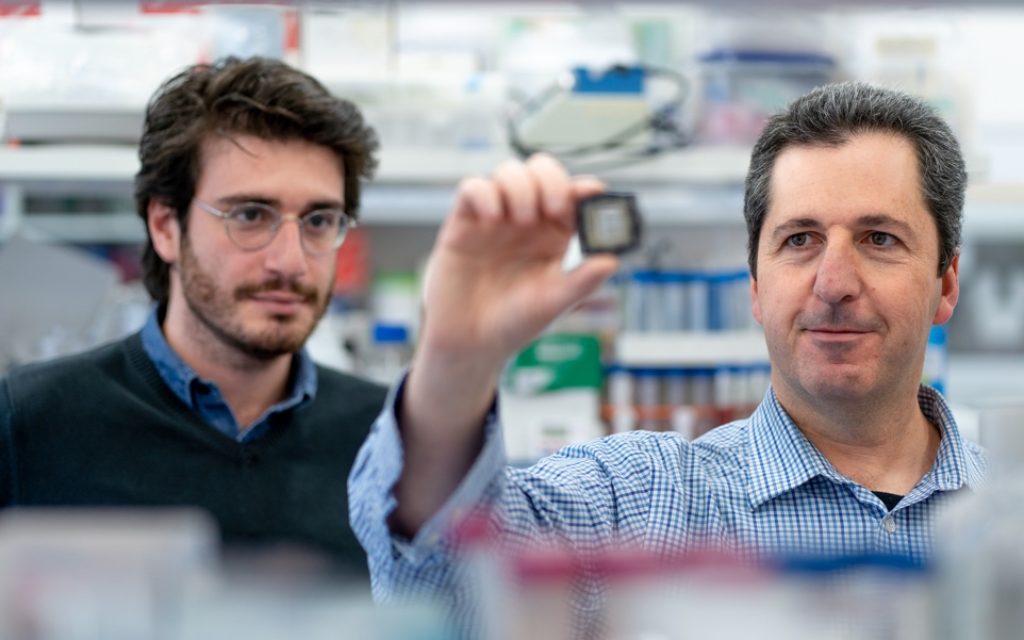Israeli scientists have developed a cancer drug without testing animals using a chip that simulates the human body.
Researchers at the Hebrew University created a chip containing human tissue with microscopic sensors to accurately monitor the response of the human body – kidney, liver and heart – to specific drug treatments.
The idea of organ-on-chip technology is 30 years old, but the Israeli team is believed to be the first to successfully create a new treatment using the resources of a chip to completely eliminate animal testing.
Start Start-Up Israel’s Daily Start-Up by email and never miss our top news Subscribe for free
They are so confident in their research that they combined two existing drugs to solve an excess liver fat problem experienced by some cancer patients, who are presenting the combination for a patent, for clinical trials and for approval by US Food and Drug Administration – all while skipping normal animal testing.

Illustration of the “human simulator” chip providing data on how the kidney, liver and heart would react to a drug (courtesy of the Hebrew University)
The success was reported in the latest issue of the scientific journal Science Translational Medicine.
“As far as we know, this is the first time that a drug is taking this step without animal testing, and the reason is that we have eliminated that need using our ‘human on a chip’ technology,” Yaakov Nahmias, who is leading the research, said The Times of Israel.

Researchers from the team of Prof. Yaakov Nahmias analyzing data from the “human simulator” chip. (courtesy of the Hebrew University)
“This is the first demonstration that we can use this technology to bypass animal experiments, and it can lead to faster, safer and more effective drug development. Getting a drug to the point of clinical testing usually takes four to six years, hundreds of animals and costs millions of dollars.
“We did this in eight months, without a single animal and for a fraction of the cost.”
He added that because chips have the potential to mimic the human body much more accurately than animals, the technology can increase the accuracy of drug development.
Nahmias, director of the Grass Center for Bioengineering at the Hebrew University, decided to solve the problem that cisplatin, a drug commonly used against cancer, causes an accumulation of fat in human kidneys.
He reported that when he “fed” the chip with cisplatin along with the diabetes medication empagliflozin, which is designed to limit the absorption of sugar in the kidneys, it became clear that the diabetes medication reduced fat accumulation.
He looked to see if there was any real-world data to support his discovery and found that cancer patients receiving cisplatin who also take empagliflozin for diabetes are less likely to accumulate kidney fat. This emerged as a clear pattern among 247 patients, he said.
Nahmias compared his discovery to the development of the first self-diagnosing cars that report their problems and suggest solutions through a garage computer.
“Today, we can easily tell if our car has a flat tire or an oil leak – our dashboard lights up because we put sensors everywhere that can go wrong in a car,” he said. “When our car fails, we simply connect it to a computer that can tell us what is wrong. Imagine doing the same thing, but for the human body. Suddenly, this seems realistic. “
